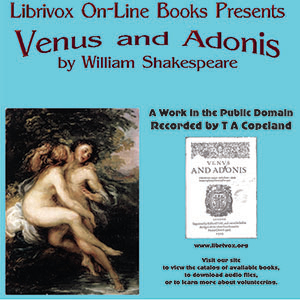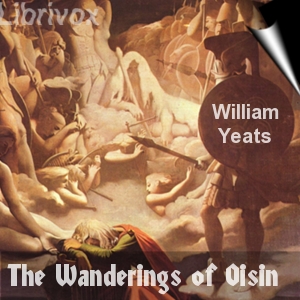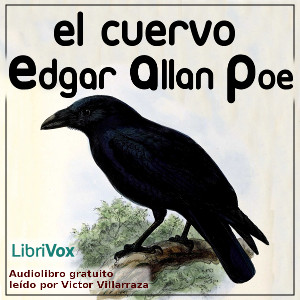
La Divina Comedia (también conocida como La Comedia) es un poema teológico escrito por Dante Alighieri. Se desconoce la fecha exacta en que fue escrito aunque las opiniones más reconocidas aseguran que el Infierno pudo ser compuesto entre 1304 y 1307–1308, el Purgatorio de 1307–1308 a 1313–1314 y por último, el Paraíso de 1313–1314 a 1321 (fecha esta última, de la muerte de Dante). La primera parte narra el descenso del autor al Infierno, acompañado por el poeta latino Virgilio, autor de la Eneida, a quien Dante admiraba. Acompañado por su maestro y guía, describe los nueve círculos en los que son sometidos a castigo los condenados, según la gravedad de los pecados cometidos en vida. Dante encuentra en el Infierno a muchos personajes antiguos, pero también de su época, y cada uno de ellos narra su historia brevemente a cambio de que Dante prometa mantener vivo su recuerdo en el mundo; cada castigo se ajusta a la naturaleza de su falta y se repite eternamente. Es particularmente recordada la historia de Paolo y Francesca, amantes adúlteros que se conocieron al leer en el libro de Lanzarote los amores de la reina Ginebra y este caballero, que fue motivo de inspiración y homenaje por poetas románticos y contemporáneos, así como la historia del conde Ugolino da Pisa, el último viaje de Ulises, el tránsito por el bosque de los suicidas, la travesía del desierto donde llueve el fuego y la llanura de hielo de los traidores, estos últimos, considerados los peores pecadores entre todos. (Resúmen de Arturo)
34 episodes
LibriVox volunteers bring you 8 recordings of The Last Buccaneer by Thomas Babbington Macaulay. This was the Fortnightly Poetry project for October 4th, 2009.
8 episodes
This narrative poem is composed in three parts, and consists of a dialogue between the aged Irish hero Oisín and St. Patrick.
Oison relates his three-hundred year sojourn in the immortal isles of Faerie. In the isles, Oison married the beautiful Sidhe Niamh: together they traveled, feasted, and quested. At last Oison succumbs to the temptation to return and visit the lands of mortal men: inadvertently slipping from his faerie horse, his body touches the ground and instantly puts on the flesh of a decrepit old man.
Oison describes various islands and what he did there: contrasting his noble deeds with the degenerate weakness of the present generation.
(Summary by Godsend)
3 episodes
Scott's The Bridal of Triermain is a rhymed, romantic, narrative poem which weaves together elements of popular English legend using dramatic themes. This beautiful poem celebrates the exploits of a knight errant - Sir Roland De Vaux - as he seeks to rescue (and hopefully espouse) a beautiful maiden, Gyneth. Gyneth is the illegitimate daughter of King Arthur: doomed by Merlin 500 years previously to an enchanted sleep inside a magic castle. The enchantment can only be broken by a rescuer both brave and noble enough to overcome the temptations used successively to distract and overcome him, namely: fear, wealth, pleasure and pride.(Introduction by Godsend)
5 episodes

In stunning narrative poetry, the story begins during the time when Robert Bruce, Earl of Carrick has been hunted out of Scotland into exile by the English and their allies. Bruce returns over sea from the Island of Rachrin: but is forced to land close to hostile forces at Artonish Castle on the seacoast of Argylshire. Seeking refuge from tempestuous seas, Bruce begs shelter from Ronald, Lord of the Isles: inadvertently on the day of his marriage feast to the beautiful Edith of Lorn.
Bruce's very presence is enough to interrupt the nuptials and to break up the festivities: the guests quickly polarise into two armed and equally matched factions: one ready to raise Bruce to the Scottish crown, the other ready to slay him for desecration and murder. The combatants are dispersed with no bloodshed only by the combined offices of Lord Ronald himself, aided by a visiting Abbot: whereupon Bruce quickly removes himself to first the Island of Sky, and then Ayrshire: raising the an army willing to rout the English and re-establish Scottish independence.
Bruce begins to win a steady stream of victories as his armies march inevitably towards Bannockburn. There, Bruce confronts Scotland's formidable enemy - led by the son of the Hammer of the Scots: the English outnumbering the Scots by more than two to one.
- Can Bruce - the so-called fugitive, traitor, and turn-coat - succeed against the massed might of England?
- Will the beautiful Edith choose to side with her blood-relations - who fight for England; or with Lord Ronald, her betrothed - who marches to battle behind Scotland's Bruce?
(Introduction by Godsend)
6 episodes
LibriVox readers present 7 versions of "Men of Harlech" by Talhaiarn. This was the weekly poem for the week of September 23, 2012.
"Men of Harlech" or "The March of the Men of Harlech" is a song and military march which is traditionally said to describe events during the seven year long siege of Harlech Castle between 1461 and 1468. The music was first published without words in 1794, but it is said to be a much earlier folk air. The song was published in Volume II of the 1862 collection Welsh Melodies with the Welsh lyrics by the Welsh poet John Jones (Talhaiarn). A version translated by John Oxenford was published in "The Songs of Wales" in 1873 with music edited by Brinley Richards. This is the version recorded in this week's poetry project. (Summary by Wikipedia)
7 episodes
"Better translate--"A Roman murder-case:
"Position of the entire criminal cause
"Of Guido Franceschini, nobleman,
"With certain Four the cutthroats in his pay,
"Tried, all five, and found guilty and put to death
"By heading or hanging as befitted ranks,
"At Rome on February Twenty-Two,
"Since our salvation Sixteen Ninety Eight:
"Wherein it is disputed if, and when,
"Husbands may kill adulterous wives, yet 'scape
'The customary forfeit.'"
(Excerpt from first chapter of The Ring and the Book.)
Note from reader: The main text I have read from follows the first edition; but there are some words or lines that do not make sense, either through copying mistakes or because they are difficult if not impossible to make sense of in the first edition. In such cases, I have relied upon an alternate text, found at archive.org and also in the public domain, that contains the wording of the later editions. --Tony Oliva
166 episodes

The Divine Comedy (in Italian, Divina Commedia, or just La commedia or Comedia) is an epic poem written by Dante Alighieri in the first decades of the 14th Century, during his exile from his native Florence. Considered the most important work of Italian literature, the poem has also has enormous historical influence on western literature and culture more generally. Dante represents the three realms of the afterlife in his three canticles (Inferno--Hell; Purgatorio--Purgatory; Paradiso--Paradise) in a way that reflects and, at the same time, goes beyond Christian tradition of the 14th Century. Dante is sometimes called "The father of the Italian language" for the linguistic influence of the Comedy, which helped to elevate his native Florentine Tuscan dialect to the level of national standard. The poem is written in the first person, and tells of Dante's journey through the three realms of the dead, lasting from the night before Good Friday to the Wednesday after Easter in the spring of 1300. The Roman poet Virgil guides him through Hell and Purgatory; Beatrice, Dante's ideal woman, guides him through Heaven. (Summary by Mary J)
MC: Leni
BC: Mary J
DPL, Editor: Michele Eaton
Cast:
Heavenly Messenger, Pier della Vigna, Malacoda, Sordello, Sapia, Angel of Temperance, Leah, Nymph 2, Piccarda: Sarah Terry
Pier da Medicina: Adele de Pignerolles
Homer, Minotaur, Jacopo Rusticucci, Pope Nicholas, Master Adam, Cato, Manfred, King Solomon, Adam: alanmapstone
Tree, Tree 2, A Soul in the Sphere of Mercury: Amy Gramour
Peter Damian: David Lawrence
Sinner 1, Megaera, Soul 2, Widow, Wife of Pisistratus, Siren, Lustful Soul 1, Nymph 7: Availle
Mohammed, Corrado Malaspina: BeniaminoMassimo
Minos: Bryan Rupert
Aglauros, Pisistratus, Abbot of St Zeno: DomBombadil
Ulysses: David N Winkler
Count Ugolino, Soul 3, St James: Beth Thomas
Plutus, Calvalcante dei Calvalcanti, Giacomo da SantAndrea, Alessio Interminei of Lucca, Vanni Fucci, Guido da Montefeltro, Sinon, Nimrod, Buonconte Da Montefeltro, Guard, Oderisi, Envious Soul 3, Marco, A Pope, Forese Donati, Guido Guinizelli, Griffon, Justinian, Thomas Aquinas, St Peter: Andrew Coleman
Cacus: GaylorSwift
Ciacco, Sinner 3, Lano, Tegghiaio Aldobrandi, Malebranche 2, Fra Catalan, Puccio Sciancato, Boniface VIII, Capocchio, Frate Alberigo, Belacqua, Judge Nino, Envious Soul 4, Guido del Duca, Nymph 3, Charles Martel, Bonaventure, St Bernard: Zach K
Bertran de Born, Angry Mob: Johnny Alexander
Narrator, Beatrice: Mary J
Charon, Filippo Argenti, Chiron, Guido Guerra, Venedico Caccianimico, Swindler: inflected
Proud Soul 2, Nymph 4: Jessie Yun
Francesca da Rimini: Amanda Friday
Angry Mob 1, Angel of Peace, Singing Elder, Nymph 5: K Cotter
Wrathful Soul, Tisiphone, Farinata, Nessus, Capaneus, Malebranche 1, Fra Loderingo, Snakeman, Black Cherub, Mosca, Camiscione dei Pazzi, Casella, Pia, Angel, Proud Soul 3, Envious Soul 2, Thunderous Voice, Angry Mob 4, Lavinia, Slothful Soul 1, Angel of Zeal, Hugh Capet, Bonagiunta, Lustful Soul 3, Soul in Eden 1, Many Souls Voice 3, Nymph 1, Folco, St Benedict, St John: Kristin Gjerløw
Omberto, Rinieri dal Calboli, Avaricious/Prodigal Penitent, Statius, Many Souls Voice 4: Leni
Virgil: Anna Simon
Phlegyas: LibriNinja
Lucia, Malebranche 4, Penitent Soul, Jacopo del Cassero, Lucia, Angel of Humility, Other Souls 2, Many Souls Voice 5, Nymph 6: Lydia
Brunetto Latini: Martin Geeson
Bocca degli Abati: Alex Lane
Excommunicated Repentant Soul: Nan Mig
Alecto, Trajan: Patrick Eaton
Cacciaguida: Vin Reilly
Griffolino, Slothful Soul 4: Rob Board
Sinner 2, A Florentine Bush, Malebranche 5, Traitor 2, Angry Mob 2, Slothful Soul 3, Lustful Soul 2, Soul in Eden 2, Many Souls Voice 2: Rosslyn Carlyle
Avaricious, Prodigal Penitent 2: Ruth Golding
Singing Souls, Angel of Purity, Matelda, Singing Angels: Shakira Searle
Avaricious Soul, Agnello, Angry Mob, Cunizza: Holly Alexander
Virgin Mary, Prodigal Soul, Demon, Usurer, Traitor 1, Late Repentant Soul, Proud Soul 1, Envious Soul 1, Angel of Generosity, Holy Lady, Other Souls 1, Voice, Many Souls Voice 1, Eagle: TriciaG
Dante: Peter Tucker
Malebranche 3, Buoso, Angry Mob, Slothful Soul 2: Vincent Alexander
Daniel Arnaut: Vespero
101 episodes

The Autobiography of a Super-Tramp is an autobiography published in 1908 by the Welsh poet and writer W. H. Davies (1871–1940). A large part of the book's subject matter describes the way of life of the tramp in the United Kingdom, Canada and the United States in the final decade of the 19th century. George Bernard Shaw had become interested in Davies, a literary unknown at the time, and had agreed to write a preface for the book, largely through the concerted efforts of his wife Charlotte. Shaw was also instrumental in keeping the unusual title of the book, of which Davies himself was unsure, and which later proved to be controversial with some reviewers. The book was the third published by Davies, having been preceded by The Soul's Destroyer (1905) and New Poems (1907). The 1920 edition of the book concludes with five poems selected by Davies from The Soul's Destroyer. The book was written in the space of six weeks, "a great achievement for a first book by a man with the minimum of education." ( Wikipedia (edited by Expatriate))
35 episodes
This is a volume of narrative poems by Edwin Arlington Robinson. - Summary by Carolin
21 episodes
We selected some of our favourite poets for this collection, including Dante, Fitzgerald, Keats, Barrett Browning, Lear, Carroll, Milton, Morris, Swinburne and Rossetti. We hope you enjoy listening to them. - Summary by Newgatenovelist
20 episodes

This novel in verses is an example of Russian classic literature. The plot tells about young nobleman moving to country from St. Petersburg, driving there not only by mansion inheritance from his uncle but by the spleen, to find friendship and love which will turn out disappointing and even a tragedy. The main charm of the text is in its verses - the stanza consisted of 14 lines written in verses of iambic tetrameter has became classical since and has been called Onegin stanza.
Этот роман в стихах является образцом классической русской литературы. В основе сюжета история молодого дворянина, который переезжает в деревню из Санкт-Петербурга не только для того, чтобы вступить в наследование имением своего дяди, но и из-за сплина, тоски. Здесь он находит дружбу и любовь, которые в итоге оказываются разочарованием и оборачиваются трагедией. Основная же прелесть текста в стихе, которым он написан - эта строфа из 14 строк четырехстопного ямба с тех пор так и называется "онегинской".
(Summary by xenium5)
8 episodes
La Cautiva es un poema narrativo épico, publicado originalmente en 1837. Se considera la obra más representativa del romanticismo argentino. Brián, un valiente soldado del ejército nacional, ha sido capturado por una tribu indígena luego de un violento enfrentamiento en medio de un malón. Herido, es capturado junto con su esposa, y muchas otras mujeres y niños. María, su mujer, arriesga su vida para liberar a su esposo y juntos emprenden la huída por el campo. - Summary by mariemdover
10 episodes
En este tradicional poema de la literatura gauchesca argentina, el gaucho Anastasio "el Pollo" se encontró con su amigo Laguna en el camino. Mientras sus caballos descansaban y se refrescaban, "Pollo" le reveló a Laguna que recientemente había visto al Diablo, mientras visitaba el teatro Colón en la Ciudad de Buenos Aires. Acompañado por varios tragos de ginebra, Laguna escuchó la historia de Fausto, experimentada por su amigo "Pollo". - Summary by mariemdover
6 episodes
Poe’s famous narrative poem and the author’s reflections on its composition. (David Wales)
3 episodes
Jim, an axe-man for a sawmill, who is a hard-knuckled, two-fisted fighting man when he has to be, but is shy around women, longs to find a wife and settle down. Two women, one a mercenary widow of the country town, the other a classy city girl, both set their caps for Jim. Will true love triumph? Will Jim's dog ever get his dinner? Will Jim ever get his tongue untied? These and other questions are answered in this story in rhyme. - Summary by Son of the Exiles
12 episodes
A ne'er-do-well's life is changed by an encounter with a stubborn animal. - Summary by Matthew Schneider
4 episodes
This collection of 24 contains some of T. S. Eliot's earlier work. This collection contains poems in English as well as some completely in French, others with various lines/couplets in Latin and Italian. - Summary by Foon
24 episodes
El cuervo de Edgar Allan Poe es un poema narrativo que fue publicado por primera vez en el año 1845 durante el mes de enero, es uno de los escritos más populares de este autor, del cual se ha hecho mención en múltiples ocasiones en la cultura popular. - Summary by Phileasfogg
2 episodes
“Digger Smith” is a series of narrative poems about an Australian soldier coming home in the closing months of the Great War minus a leg and with “ANZAC eyes” ... what a later war would call “The Thousand Yard Stare”.
Despite his post-traumatic stress disorder, Digger Smith sets about ministering to everybody’s troubles but his own ... his internal conviction that his amputee status will make him seem “half a man” in the eyes of the lady love he left behind when he went off to the War.
Oh Digger Smith, how little faith you have in woman... - Summary by Son of the Exiles
13 episodes
Libro de viajes de Federico García Lorca, donde recoge sus impresiones y pensamientos íntimos ante la contemplación de distintos lugares de la geografía española que recorrió en su juventud y que como él mismo decía "[i]los recuerdos de viaje son una vuelta a viajar, pero ya con más melancolía y dándose cuenta más intensamente de los encantos de las cosas. (Summary by Epachuko)
48 episodes
Mein blaues Buch ist eine Sammlung von Balladen und Romanzen, welche 1909 erschien. Löns war leidenschaftlicher Jäger und gerne in der Natur unterwegs. Viele seiner Beobachtungen und Eindrücke setzte er nicht nur in Prosa, sondern auch in Gedichten um. Er gilt als einer der Vorreiter für den Naturschutz und war schon zu Lebzeiten ein Mythos. - Summary by lorda
48 episodes

Both Ovid and Spenser also treat this ancient myth, but Spenser alters the ending, converting the tale into an archetype of fulfilled love, whereas Ovid, like Shakespeare, combines humor with pathos as a buffer against sentimentality. Ovid’s Venus behaves absurdly out of character, becoming a huntress to keep her lover company in the woods. Shakespeare, however, preserves decorum; his Venus remains at all times the queen of love. The humor arises rather from the fact that the would-be paramour isn’t interested. This endows the goddess’s wooing with nearly slapstick over-exertion, and yet her sincerity makes her appealing, while Adonis’s immaturity forces us to respect his chastity. The pathos comes, of course, from the unhappy ending—more unhappy because we do not expect a comedy to end sadly, especially not when we sympathize with the characters.
The poetic form or genre, the epyllion, is an erotic narrative based on mythology, like Marlowe's Hero and Leander and, later, Phineus Fletcher's Venus and Anchises, also found in the Librivox catalogue. Venus and Adonis and The Rape of Lucrece, both narrative poems, are the only works that Shakespeare ever carefully saw through the press. - Summary by T. A. Copeland
1 episodes
A narrative poem in seven cantos, set during the Northern Rebellion of 1569. A group of Catholic nobleman from the North of England attempt to unseat Queen Elizabeth I and replace her with Mary, Queen of Scots. They are soon routed and Elizabeth's forces exact their revenge on the people of the Yorkshire Dales. Inspired by a visit to Bolton Abbey, Wordsworth's poem details the sad fate of one Catholic family whose patriarch decides to lend support to the rebellion. Although it is not among his most popular poems, Wordsworth himself considered The White Doe of Rylstone to be one of his finest. - Summary by Phil Benson
10 episodes























